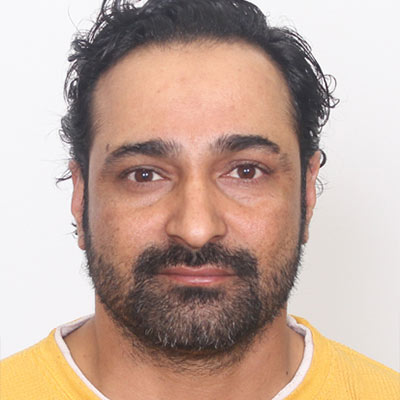WHY STUDY IN CANADA?
- One of the best place in the world to live - declared by UN
- Canada is a peaceful, politically stable, and safe country
- High standard of living and Multicultural
- Internationally recognised Education system
- Low cost of living as compared to other competitive countries
- Students in Canada are allowed to work part time on campus during the first 6 months of their program and off campus part time thereafter.
- Student can bring dependent during their study
- Post study work visa allow student to work in Canada after their graduation
- Skilled work opportunity is high
- Permanent residence is easy to get for qualified International students
How can I apply to Canadian Education Institute?
It is always recommended that you plan ahead for studies abroad. As an international student, you ought to start preparing at least a year ahead, to keep up with the pace of international applications. Canadian semesters are divided into two major intakes. The first is the ‘Fall’ semester that begins in September, and the next is the ‘Winter’ semester that starts in January. However, there are some universities which have an intake in May. University deadlines for each semester vary from one to another. You must be careful while checking the dates for each university that you intend to apply for. There are colleges with rolling admission policy. They will accept applications for as long as the processing time permits.
English Language Requirements
International students are asked to show proficiency in English before their applications are considered . An IELTS band of 5.5/6.0/6.5 for Undergraduate & 6/6.5/7 for Postgraduate courses or a TOEFL score of 80 and above for Undergraduate and 90 and above for Post Graduate courses is desirable.
Documents required to make an Application
- Secondary school reports- Your accomplishments and experience in school, a scoring guide, school/college leaving certificate, all transcripts in English.
- Standardized tests- TOEFL/IELTS scores; Customized English proficiency tests are held for certain universities.
- Letter of recommendation- Furnish a minimum of 2 letter of recommendations from professionals and teachers who have known and worked with you. Your recommender must know you personally and professionally.
- Statement of Purpose- This can be a general SOP. There are business schools who have personalised formats that you may have to use for an SOP.
- Passport copy
- Resume ( for management school applications )
- Work experience ( if applicable)
Ontario universities and colleges application system
For colleges and universities in Ontario, your application must come via central application centres. The deadline for application for the Fall Semester of a particular year is the 1st of March. Any application beyond this date is treated on a first-come- first-serve basis. Again, there are exceptions with certain institutions which accept direct applications.
The application process at Ontario universities: Fill the application form for Ontario Universities Application Centre (OUAC). You can apply for up to 3 programmes or universities of your choice. Pay a fee of C$95 by the 1st of March.
The application process at Ontario Colleges: You can apply via Ontario College Application Service (OCAS) to 5 programmes or colleges of your choice. A fee of C$65 has to be paid by the 1st of March.
OUAC and OCAS forward your applications to the appropriate institutions. However, you have to submit the necessary documents and supplementary fees to the respective universities on the requested deadlines.
Quebec and rest of Canada
All the application requirements must be submitted to the Registrar’s office of your chosen institutions. Once you receive an official acceptance letter you may apply to the Canadian High Commission for student authorization (Visa). In the case of Quebec, additionally, you need to apply for a Certificate of Acceptance (CAQ) from the government of Quebec.
Cost of Studying
Canada offer the quality education at affordable price. Tuition fee for higher education in Canada is lower than many countries like USA, Australia, UK .
| Programs | Duration | Average Tuition fee range |
|---|---|---|
| English language Program | Upto 1 Year | $8000 to $12000 |
| Advance Diploma | 3 Years | $8000 to $15000 per annum |
| Bachelor | 4 Years | $10000 to $21000 per annum |
| Graduate Diploma | 1-2 Years | $9000 to $16000 Per annum |
| Master | 2-3 Years | $11000 to $25000 Per annum |
Living expenses per annum for a student is around $8000 to $12000. Accommodation may cost between $3000 to $7000 per annum . Average cost of study in Canada is around $30000 per annum.
Visa Process and Requirements
Depending on your country of origin and the type and length of study, you may require:
- A temporary resident visa.
- A study permit.
In order to be eligible to apply for a student permit (student visa ) , a student must be enrolled in a program of study ( degree, diploma or certificate) and the institution should be listed under Designated Learning institutions (DLI) list authorized by CIC.
Categories
In Canada the educational institutes are divided into three categories for a student visa:
- SDS (Student Direct Stream) Category
- General Category
- University Category
Categories
The last time the student could apply for the student visas of Canada under the SPP (Student Partner Program) category, but now the SDS category has replaced the SPP category. In SDS Category, you can study in all the Designating Learning Institutes (DLI) of Canada, whereas under SPP, you had the option of only 47 colleges, which is also included in the SDS. In SDS Category the Academics requirements for a student visa is more than 55% in Last qualifications, in IELTS you should have more than 6 band overall with 6 band in Each module. Maximum 5 to 6 Backlogs are acceptable. Under SDS the processing time is fast in comparison of SPP and options are wide.
General Category:
The last time the student could apply for the student visas of Canada under the SPP (Student Partner Program) categoOptions in the general category are similar to SDS, but if you do not completely fulfill the SDS requirement or in other words, if you get a little less points than requirements, then you have the option of general category after fulfilling the other requirements. In order to submit your file, you need to show funds. So in General Category the minimum required percentages are 50%. In IELTS you should have more than 5.5/5 Band.
University Category:
Apart from SDS or General the third Category of Canada student visa is University Category. Under this category students can apply for the student visa on the basis of study in the Universities in Canada. The requirements for University category is 6.5/6 or 7/6.5 Band in IELTS. Also, under this Category the students should have more than 60% in their last qualification. The requirements may differ as per the requirements of the University. Some top Universities in Canada are; University of Toronto, McGill University, University of British Columbia, University of Alberta, McMaster University, etc.
A step-by-step guide to obtaining a student authorization
- photocopies of a valid passport or travel document or identity document that guarantees re-entry to the country that issued it; and
- two recent passport-size photos (2" x 2.5") for each family member, with the full name and date of birth recorded on the back of each photo.
- Visa officers may also wish to see the actual passport or travel document and will inform you if this is the case.
Proof of financial support that shows you will have enough money during your stay in Canada to cover
- tuition fees,
- return transportation and
- $10,000 CDN per annum for living expenses ( GIC )
(additional funds may be required if there are other family members accompanying you).
Documentation for this requirement could be
- your bank statements for the past four months
- a bank draft in convertible currency.
- pay stubs.
- an employment letter.
- proof of assets or business.
- proof of payment of tuition and accommodation fees.
- tax reports, declarations or statements.
- proof of a student/education loan from a financial institution.
- a letter from the person or institution providing you with money.
- proof of funding paid from within Canada, if you have a scholarship or are in a Canadian-funded educational program.
- proof of a Canadian bank account in your name if money has been transferred to Canada.
(As a guideline, $10,000 CDN mean GIC account plus to tuition fees per academic year is generally viewed as sufficient.)
A medical examination in your country of origin. Medical exams are required if your stay is longer than six months and you come from a country with high health risks or will be studying or working in a place where protection of public health is essential.
Proof of acceptance by an approved educational institution. The following information must be included in letters of acceptance: name, date of birth, mailing address of student; the course for which the student has been accepted; the estimated duration or date of completion of the course; the date on which the course begins; the last date on which the student must register for the course; the academic year which the student will be entering; whether the course is full or part-time; the tuition fee; any conditions related to acceptance; clear identification of the educational institution; and licensing information for private institutions. This letter must be signed by an authorized representative of the institution.
Student visa application form Visa application can be filled online or submitted as a paper application . More information about application form can be found on CIC website.
Once you have completed the application forms and have gathered the necessary documentation, proceed to the visa office nearest to you and submit the forms and required information along with a study permit fee. When reviewing your study permit application, a visa officer must be satisfied that you meet the requirements of the Canadian Immigration Act and Regulations and that you will only be in Canada temporarily. Once the visa officer is satisfied that you are a "bona fide" student and all statutory requirements are met, you will be issued a document which must be shown to an immigration officer at the port of entry in Canada in order to obtain a study permit . As your study permit will normally be valid for the duration of your course, please ensure that your travel document (passport) is also valid for that same period of time.
If you are a minor (typically less than 18 years but this can vary from province to province), proof of custodianship in Canada is required. You must provide a notarized declaration signed by your parent or legal guardian in the country of origin AND a notarized declaration signed by the custodian in Canada stating that adequate arrangements have been made for the custodian in Canada to act in place of a parent in times of emergency, such as when medical attention or intervention is required. For younger children, a broader declaration may be required. Broad declarations must state that the custodian is not only responsible in times of emergency but also for day-to-day care and supervision.
List of documents are required for the visa
- Study Visa application form ( IMM1294) , Family information form (IMM5645) and IMM5257 form .
- Original passport ( Should be valid for duration of study )
- Photos
- Letter of Acceptance from your prospective University in Canada.
- IELTS test taken within 24 months.
- Photocopy of the most recent
- Dip/leaving, most recent mark sheet (consolidated mark sheet are NOT acceptable)
- Copy of the receipt of the tuition fees paid.
- Proof of funds – in an acceptable format
- Copy of medical examination
- Bio Metric : Fingerprints and Eye scanning Report at Embassy / VFS .
Bio Metric Fees : 85 CDN and Embassy Fees : 155 CDN
The type of documentation required depends on your country of origin, the program you are taking, and the length of your study:
- Any study program of up to six months: no study permit is required.
- Programs longer than six months require a study permit
NOTE: A temporary resident visa may be required depending on your country of origin. Please see the list of countries that require a temporary resident visa as provided by Citizenship and Immigration Canada.
University List
| University Name | Location |
|---|---|
| University of Alberta | Edmonton |
| University of Calgary | Calgary |
| University of Lethbridge | Lethbridge |
| Northern Alberta Institute of Technology | Edmonton |
| Mount Royal University | Calgary |
| MacEwan University | Edmonton |
| The King's University | Edmonton |
| Ambrose University | Calgary |
| Concordia University of Edmonton | Edmonton |
| Burman University | Lacombe |
| St. Mary's University | Calgary |
| University of Manitoba | Winnipeg |
| The University of Winnipeg | Winnipeg |
| Brandon University | Brandon |
| Canadian Mennonite University | Winnipeg |
| Memorial University of Newfoundlan | St John’s |
| College of the North Atlantic | Stephenville |
| University of Toronto | Toronto |
| University of Waterloo | Waterloo |
| York University | Toronto |
| Queen's University | Kingston |
| The University of Western Ontario | London |
| McMaster University | Hamilton |
| University of Ottawa | Ottawa |
| Carleton University | Ottawa |
| University of Guelph | Guelph |
| Ryerson University | Toronto |
| University of Windsor | Windsor |
| Brock University | St. Catharines |
| Wilfrid Laurier University | Waterloo |
| Lakehead University | Thunder Bay |
| Trent University | Peterborough |
| Laurentian University | Sudbury |
| University of Ontario Institute of Technology | Oshawa |
| Nipissing University | North Bay |
| OCAD University | Toronto |
| Collège militaire royal du Canada | Kingston |
| Algoma University | Sault Ste. Marie |
| Redeemer University College | Ancaster |
| Collège Universitaire Dominicain | Ottawa |
| University of Saskatchewan | Saskatoon |
| University of Regina | Regina |
| Luther College | Regina |
| St. Thomas More College | Saskatoon |
| Campion College at the University of Regina | Regina |
| First Nations University of Canada | Regina |
| The University of British Columbia | Vancouver |
| Simon Fraser University | Burnaby |
| University of Victoria | Victoria |
| British Columbia Institute of Technology | Burnaby |
| Vancouver Island University | Nanaimo |
| Thompson Rivers University | Kamloops |
| Royal Roads University | Victoria |
| University of Northern British Columbia | Prince George |
| Trinity Western University | Langley |
| Kwantlen Polytechnic University | Surrey |
| University of the Fraser Valley | Abbotsford |
| Capilano University | North Vancouver |
| Capilano University | North Vancouver |
| Emily Carr University of Art and Design | Vancouver |
| University Canada West | Vancouver |
| University of New Brunswick | Fredericton |
| Mount Allison University | Sackville |
| Université de Moncton | Moncton |
| St. Thomas University | Fredericton |
| Yorkville University | Fredericton |
| Kingswood University | Sussex |
| Crandall University | Moncton |
| St. Stephen's University | St. Stephen |
| Dalhousie University | Halifax |
| Acadia University | Wolfville |
| St. Francis Xavier University | Antigonish |
| Saint Mary's University | Halifax |
| Mount Saint Vincent University | Halifax |
| Cape Breton University | Sydney |
| NSCAD University | Halifax |
| University of King's College | Halifax |
| Université Sainte-Anne | Pointe-de-l'Église |
| McGill University | Montreal |
| Université de Montréal | Montreal |
| Université Laval | Quebec City |
| Concordia University | Montreal |
| Université du Québec à Montréal | Montréal |
| Université de Sherbrooke | Sherbrooke |
| Université du Québec | Université du Québec |
| École Polytechnique de Montréa | Montreal |
| Université du Québec à Chicoutimi | Chicoutimi |
| HEC Montréal | Montreal |
| École de Technologie Supérieure | Montreal |
| Bishop's University | Sherbrooke |
| Université du Québec à Trois-Rivières | Trois-Rivières |
| Université du Québec en Outaouais | Gatineau |
| Université du Québec à Rimouski | Rimouski |
| Université Laval | Quebec City |
| Université du Québec en Abitibi-Témiscamingue | Rouyn-Noranda |
| École Nationale d'Administration Publique | Quebec City |
Colleges List
British Columbia
- British Columbia Institute of Technology
- Okanagan College
- Ashton College
- Brighton College
- Columbia College
- Camosun College
- Canadian College
- Capilano University
- Collège Éducacentre
- College of the New Caledonia
- College of the Rockies
- Douglas College
- Eton College
- Justice Institute of British Columbia
- Kwantlen Polytechnic University
- Langara College
- Native Education College
- Nicola Valley Institute of Technology
- North Island College
- Northern Lights College
- Northwest Community College
- Okanagan College
- Selkirk College
- Sprott Shaw College
- Vancouver Community College
- Vancouver Institute of Media Arts
Alberta
- Alberta Bible College
- Alberta College of Art and Design
- Ambrose University College
- Bow Valley College
- Canadian University College
- Concordia University College of Alberta
- DeVry Institute of Technology
- Grande Prairie Regional College
- Keyano College
- Lakeland College
- Lethbridge College
- Medicine Hat College
- NorQuest College
- NAIT
- Northern Lakes College
- Olds College
- Portage College
- Red Deer College
- SAIT
- St. Mary’s University College
- Taylor University College and Seminary
- The King’s University College
Manitoba
- Winnipeg Technical College
- Assiniboine Community College
- University College of the North
- Red River College of Applied Arts, Science and Technology
- École technique et professionnelle, Université de Saint-Boniface
- Manitoba Institute of Trades and Technology
New Brunswick
- New Brunswick College of Craft and Design
- New Brunswick Community College
- Maritime College of Forest Technology
- New Brunswick Bible Institute
Newfoundland and Labrador
- College of the North Atlantic
- Marine Institute
- Centre for Nursing Studies
Ontario
- Université de Guelph, Campus d’Alfred
- Algonquin College
- Collège Boréal
- Cambrian College of Applied Arts and Technology
- Canadore College of Applied Arts and Technology
- Centennial College of Applied Arts and Technology
- La Cité collégiale
- Conestoga College Institute of Technology and Advanced Learning
- Confederation College of Applied Arts and Technology
- Durham College
- Fanshawe College of Applied Arts and Technology
- Fleming College
- George Brown College
- Georgian College of Applied Arts and Technology
- Humber College Institute of Technology & Advanced Learning University of Guelph,
- Kemptville Campus
- Lambton College of Applied Arts and Technology
- Loyalist College of Applied Arts and Technology
- The Michener Institute for Applied Health Sciences
- Mohawk College of Applied Arts and Technology
- Niagara College
- Northern College of Applied Arts and Technology
- St. Clair College of Applied Arts and Technology
- St. Lawrence College
- Sault College of Applied Arts and Technology
- Sault College of Applied Arts and Technology
- Sheridan College Institute of Technology and Advanced Learning
Northwest Territories
- Aurora College
- Academy of Learning College
Nova Scotia
- Canadian Coast Guard College
- Gaelic College
- Kingston Bible College
- Nova Scotia Community College
Nunavut
- Nunavut Arctic College
P.E.I
- P.E.I
- Maritime Christian College
- Collège Acadie Î.-P.-É.
Québec
- Cégep de l’Abitibi-Témiscamingue
- Collège Ahuntsic
- Collège André-Laurendeau
- Cégep de Baie-Comeau
- Cégep Beauce-Appalaches
- Collège de Bois-de-Boulogne
- Champlain Regional College
- Cégep de Chicoutimi
- Dawson College
- Cégep de Drummondville
- Cégep Édouard-Montpetit
- Collège François-Xavier-Garneau
- Cégep de la Gaspésie et des Îles
- Collège Gérald-Godin
- Cégep de Granby-Haute-Yamask
- Heritage College
- John Abbott College
- Cégep de Jonquière
- Cégep de La Pocatière
- Cégep régional de Lanaudière
- Cégep de Lévis-Lauzon
- Cégep Limoilou
- Collège Lionel-Groulx
- Collège de Maisonneuve
- Cégep Marie-Victorin
- Cégep de Matane
- Collège Montmorency
- Cégep de l’Outaouais
- Cégep de Rimouski
- Collège de Rosemont
- Cégep de Saint-Félicien
- Cégep de Saint-Hyacinthe
- Cégep de Saint-Jean-sur-Richelieu
- Cégep de Saint-Jérôme
- Cégep de Saint-Laurent
- Cégep de Sainte-Foy
- Cégep de Sept-Îles
- Collège Shawinigan
- Cégep de Sherbrooke
- Cégep de Sorel-Tracy
- Cégep de Thetford
- Cégep de Trois-Rivières
- Collège de Valleyfield
- Vanier College
- Cégep de Victoriaville
- Cégep du Vieux Montréal
- Collège Bart
- Collège Jean-de-Brébeuf
- Collège Laflèche
- LaSalle College
- Marianopolis College
- Collège International Marie de France
- Collège de Valleyfield
- Collège Mérici
- O’Sullivan College of Montreal
- Collège O’Sullivan de Québec
- Collège Stanislas
- Collège Laflèche
- École de musique Vincent d’Indy
- National Circus School
- Séminaire de Sherbrooke
- Trebas Institute
Saskatchewan
- Bethany College
- Briercrest College and Seminary
- Carlton Trail Regional College
- Horizon College and Seminary
- Cégep Beauce-Appalaches
- College Mathieu
- Cumberland College
- Eston College
- Great Plains College
- Nipawin Bible College
- Northlands College
- North West Regional College
- Parkland College
- Saskatchewan Indian Institute of Technologies
- Saskatchewan Institute of Applied Sciences and Technology
- Southeast Regional College
- St Peter’s College
- Western Academy Broadcasting College
Yukon
- Yukon College
Working in Canada
During Study Period
As an international student, you may be eligible to work oncampus or offcampus.
Students in Canada are allowed to work upto 20 hours per week and full time during vacation.
You may work on campus at the institution where you study without a work permit if:
- you are a full-time student at:
- a public post-secondary institution, such as a college or university, or a collège d’enseignement général et professionnel (CEGEP) in Quebec or
- a private post-secondary institution that operates under the same rules and regulations as a public institution, and receives at least 50 per cent of its financing for its overall operations from government grants (currently only private college-level educational institutions in Quebec qualify) or
- a Canadian private institution authorized by provincial statute to confer degrees and
- you have a valid study permit
- have a valid study permit,
- be a full-time student,
- be enrolled at a designated learning institution at the post-secondary level or, in Quebec, a vocational program at the secondary level, and
- be studying in an academic, vocational or professional training program that leads to a degree, diploma or certificate that is at least six months in duration.
Use the self-assessment tool to see if you are eligible to work off campus without a work permit.
Co-op Programs :-
For some academic programs, work experience is part of the curriculum. If you wish to participate in a co-op or internship program then you must apply for a work permit as well as a study permit. To be eligible for a work permit, you must meet the following requirements:
- You must have a valid study permit.
- Your intended employment must be an essential part of your program of study in Canada.
- Your employment must be part of your academic, vocational or professional training program offered by a designated learning institution, certified by a letter from a responsible academic official of the institution.
- Your co-op or internship employment cannot form more than 50% (percent) of the total program of study.
You will not be eligible to work during your studies if:
- you study English or French as a second language (ESL/FSL), or
- you participate in general interest or preparatory courses.
After Study
Gaining valuable work experience in Canada after graduation can go a long way towards helping you permanently immigrate here. The following programs can help facilitate this process for eligible candidates:
Post-graduation work permitThe Post-Graduation Work Permit (PGWPP) allows students who have graduated from a participating Canadian post-secondary institution to gain valuable Canadian work experience. Skilled Canadian work experience gained through the PGWPP helps graduates qualify for permanent residence in Canada through the Canadian Experience Class (express Entry ) .
Further students on the completion of their program of 1 year can work upto 1 year and students applying for 2 years program can work for 2-3 years.
Learn more about the Post-Graduation Work Permit at Immigration, Refugees and Citizenship Canada’s website.
Canadian Experience ClassAfter you have lived in Canada for some time, you may have good English or French skills, the right kind of skilled work experience, and be used to Canadian society. The Canadian Experience Class (CEC) was created to help people like this take part in the Canadian economy
Learn more about the Canadian Experience Class at Immigration, Refugees and Citizenship Canada’s website.
Provincial Nominee ProgramAlmost all of Canada’s provinces and territories can nominate people to immigrate to Canada. These people have the skills, education and work experience they need to contribute to the economy of that province or territory.
Learn more about the Provincial Nominee Program at Immigration, Refugees and Citizenship Canada’s website.
Useful Links for Student
http://www.iccs-ciec.ca/index_en.php
http://www.international.gc.ca/education/partners-partenaires.aspx?lang=eng
http://cou.on.ca/key-issues/international/international-students/
http://www.studycanada.ca/
http://www.educanada.ca/
http://www.cic.gc.ca/






